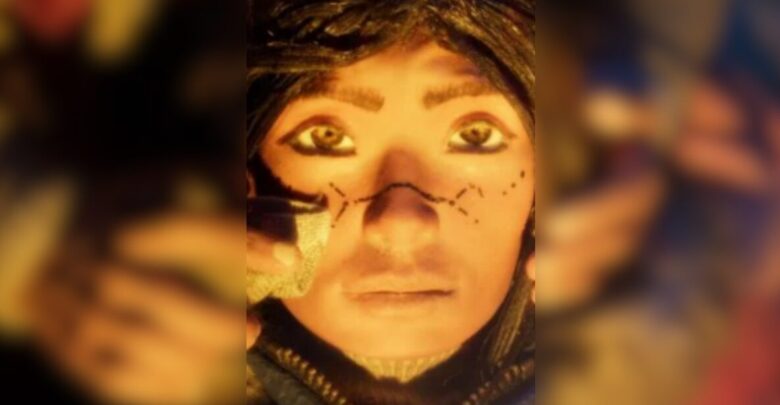EIFF film review: ‘Inkwo For When the Starving Return’
'Inkwo For When the Starving Return' is a masterful short film that highlights the urgency to save our planet, and a genderless protagonist who can do so.
 Supplied
SuppliedAs part of a series of Indigenous short films put on by the Edmonton International Film Festival (EIFF), which ran from September 26 – October 5, Inkwo For When the Starving Return showcases the fight against evil forces and the necessity to protect our planet. Directed by Amanda Strong, the short film is a rendition of Richard Van Camp’s original short story, Wheetago War: ROTH.
While the film is only 18 minutes, it packs a powerful punch. Dove (Paulina Alexis), a genderless warrior, must navigate the confusing and terrifying world they live in — which takes place two generations in the future. After Dove’s mother falls under the ice of a frozen lake, Dove is forced to navigate the world on their own. They are brought up by Auntie (Tantoo Cardinal) who teaches them about the inkwo (medicine) that is inside them.
Throughout the film, Dove learns what it means to have inkwo inside of them. Through the use of stop-motion animation, each scene is profound in the way it portrays emotion. The array of bright colours in the outdoor scenes speak to a vibrant world that is crucial to save. This is a sharp contrast to the eerie and harrowing creatures that Dove encounters throughout.
There are numerous instances where Dove’s relationship with nature comes into play. When two kids are beating up an injured frog, Dove tells them to them to leave it alone. They try desperately to bring the frog back to life — to which they are successful. The frog ends up urging Dove to use their inkwo to help save the world. The urgency portrayed in these conversations is dire. When Dove encounters one of the creatures, it is a perilous fight to survive. One of the creatures is Auntie, who has died and become one of them. Dove must use the inkwo Auntie taught them to kill her. The irony in this scene is beautiful, yet morbid. Dove must kill their mentor through her own teachings.
While Dove must fight to defend the remaining humans on earth, they are also dealing with an inner conflict — their identity. When they meet the frog, Dove explains that they don’t identify with being male or female. This identity conflict is combatted alongside the need to save the world. Dove understands the gravity of the situation, yet struggles to do so while navigating their own gender identity.
The final scene of the film speaks to the ongoing need to save the planet. While the external forces surrounding Dove are dire, by channeling their inkwo they persevere.
Inkwo For When the Starving Return is a masterful telling of Indigenous practices, folklore, and the urgency to save a dying planet. Through the use of stop-motion animation, the profound scenes come to life through the attention to detail and colourful settings. Overall, this short film is nothing short of brilliant, and conveys a powerful message.




